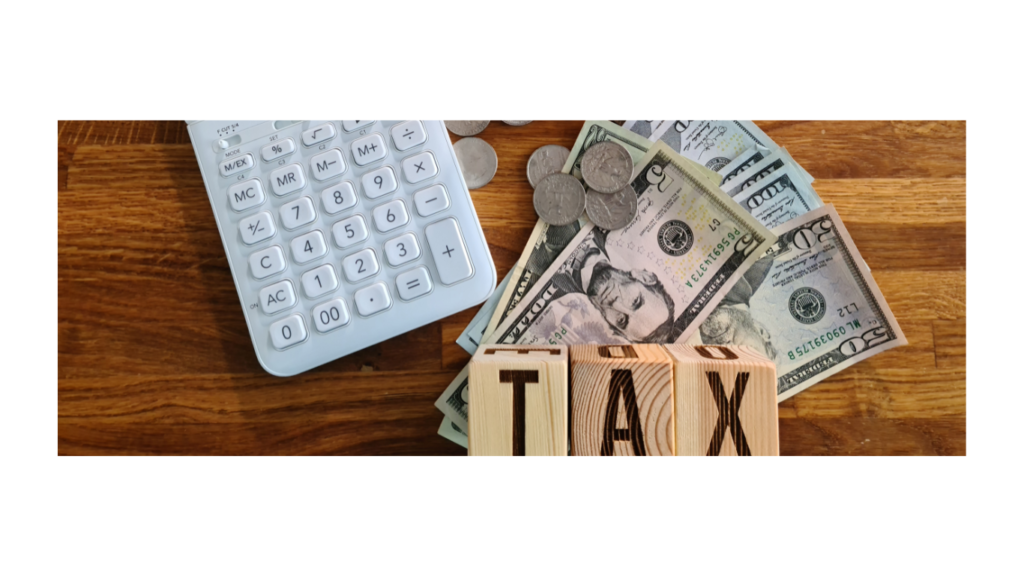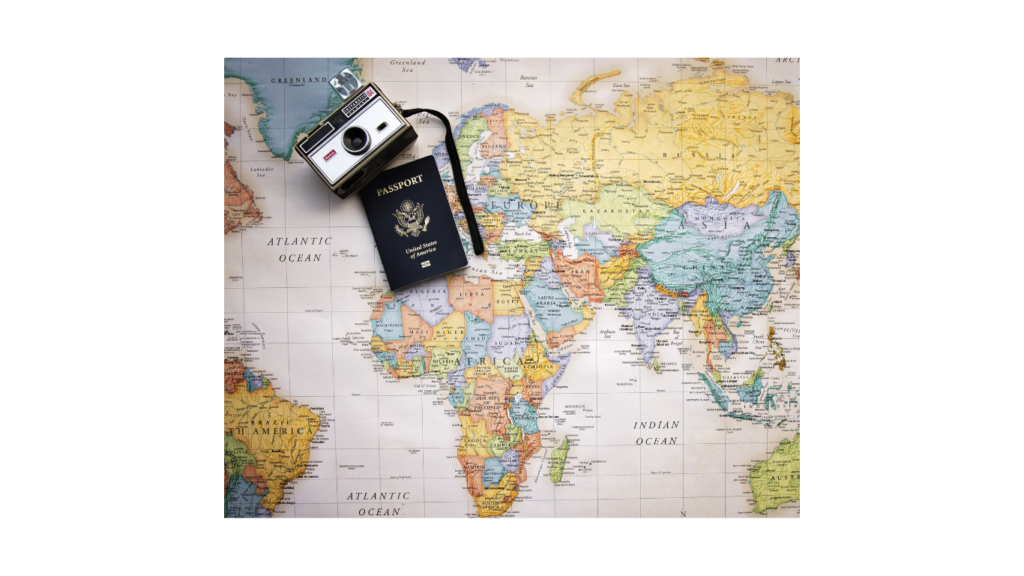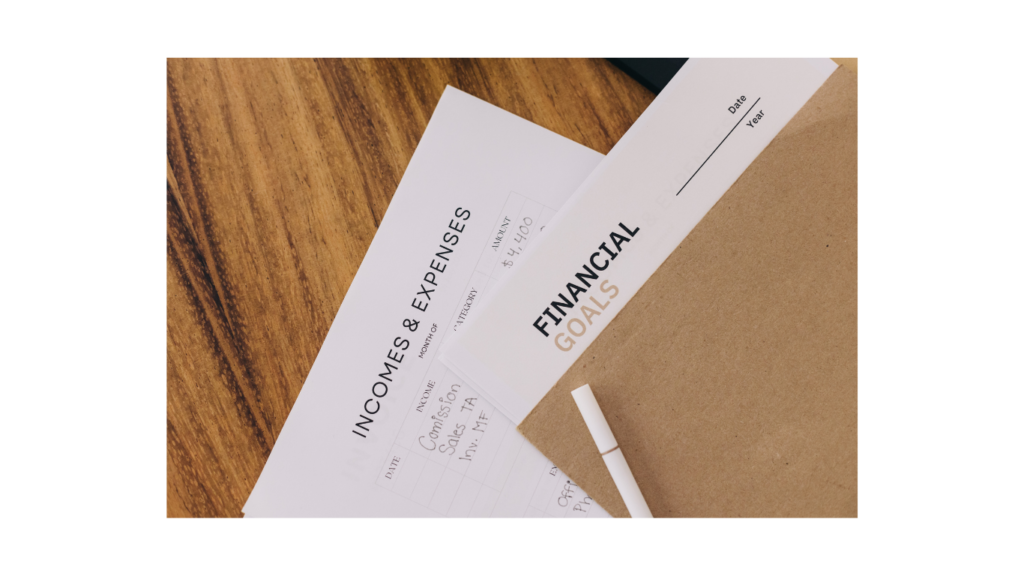This post may contain affiliate links. This means that if you click on one of my links and make a purchase, I receive a commission at no extra cost to you. See the full affiliate disclosure here.
Your Financial Takeover Starts Here

Many of us struggle to save our money. We often are unaware of how quickly it leaves our wallet or bank account. Until we look back at our bank statements and see that the small spending adds up!
For years I convinced myself in order to save enough money, I needed to get a job that paid more.
Now, making more money can be very helpful however I found it was NOT the first step I needed to take. Because if I did not implement the habits I plan on sharing with you, what would it matter if I made more money if I was not managing it properly?

I was so tired of making a decent income while barely maintaining $5,000 in my savings account. Now that is a good amount of money, but if you have plans, as I do, on retiring, investing, traveling, finding a home, raising children, or paying for unpredictable/unexpected costs, well $5000 is not going to get you too far.
When my husband and I started allocating our money to the right areas that would help us reach our goals, we decided it was not enough. We knew there was more room to save in our budget as we have some big goals ahead.
So we had to find money elsewhere. We can make more money by asking for a raise, applying for another job, starting a side hustle, etc. All these are potential options but not as quick or easy enough.
Why not take a gander at our expenses first? It’s something to grab by the horns immediately.
I was so happy to find all the simple ways we were able to save generated us over 60% of annual savings that feed our goals. They feed our goals a lot faster than if we were to avoid these habits.
Here’s How We Used These 5 Habits to Save More than Half of Our Income

1. Reduced Our Grocery Bill from $600 to $300/month ($3600 Annual Savings)
We were spending so much money on our grocery bills. You too right? I thought, how is it that just two people spend over $600 a month on groceries when half the month we are ordering take out or eating out?
I would buy food items based on the dishes I fantasized about making but in reality I did not set aside time to make those dishes.
This was an intimidating challenge for me. I must admit I can be a glutton when it comes to food. It is not something I am proud of but have worked on and still doing so. I wanted what I wanted, rather than eating healthier or eating less.
Less does not mean you have to starve yourself, it just means avoiding overeating and only taking in the necessary amount that will provide you with your daily nutritional needs.
So since I had the convenience of the supermarket being less than 5 minutes from our home, I would go shopping every day or every other day. The reason is that this helped me avoid over shopping and to buy only the ingredients that I needed for that day or the next two days based on my weekly meal plan.
But this was not sustainable for me. I used to make breakfast, lunch, and dinner. In fact, I was convinced we had to have 3 meals a day to function throughout the workday. That’s a lot of cooking.

My husband and I started to pay a lot of attention to our health and fitness. Because of our new initiative to get healthy, we began to practice intermittent fasting. We set our eating schedules from 11 am to 6 pm, so it limited when we were able to eat. Long story short we started eating 2 meals a day instead of 3. That put less pressure on me to cook dinner every night and helped us to lose and maintain our weight.
These 2 meals were not fancy or complicated, they were healthy and still very delicious. Protein and healthy fats were the stars of our dish while the carbohydrates were in smaller quantities if at all. I did not require elaborate ingredients and I was able to buy enough food for one to two weeks and avoid grocery shopping every day.
If I were to read this article a few years ago, I would not have liked to read someone telling me to eat less. But I am telling you to only eat enough food in a day that will satisfy your nutritional needs and satiate you.
I now buy vegetables and freeze them rather than see them spoil before I get to use them in a dish. The amount of unused spoiled vegetables my trash has seen is sinful.
I make use of 90% of the meats in my freezer before I restock. I barely stock up on sale items unless it is an item I cook with very often. For example, if I have room in my freezer, I will buy steak on sale even if I have some at home. I mentioned earlier we increased our protein intake so finding good deals on protein is helpful.
I buy store-brand items. Unless my husband and I notice a difference in taste not to our liking then I find no reason to spend more money on the same item.
Grocery shopping now consisted of weekly or biweekly visits and easier straightforward ingredients.
2. We Paid Ourselves First!

I received this advice in the past but did not understand it. What about my bills, rent, credit card debt? Shouldn’t I pay that first?
Then a light bulb went off and I figured it out. Once I receive my check, I put an already calculated amount of money (based on my future financial goals) into my savings, investment, emergency, and vacation funds. Next, I pay my fixed bills and credit card debt. Lastly, I use the remaining money for variable costs and entertainment.
But here’s the tip, if I wanted to have more money for fun, then I would assess my fixed and variable expenses and see if there was any room to reduce my bills, or eliminate any that are not useful to me. You can also change your budget for different categories of spending.
This is the best way I experienced to budget and save. My husband and I decided to put our future first (and we budget to enjoy our lives in the present time too).
We have become a lot more aware of unnecessary spending because as we allocate most of our money to save for our future, we look for extra expenses in our budget that we can eliminate or reduce. This allows us to have more for our vacation fund, entertainment funds, etc.
3. We Budget for EVERYTHING.
There is so much power to budgeting for predictable costs or events. My husband and I tend to review our spending in quarters.
- In the first quarter of the year from January to March, there is not too much going on except for a couple of birthdays. Because of the cold winter months, we find ourselves at home more often than not.

One major focus is preparing our taxes, as we are self-employed and have to prepare to pay estimated taxes every quarter of the year. But even that is allocated already from the previous year.
- From April to June, we celebrate Easter and anticipate going on a big trip. We may decide to purchase nice attire to attend Easter Church services. Our grocery bill may increase slightly for the holiday as we prepare to break our fast and feast on our traditional cultural cuisine.
We would be paying our second quarter tax estimates but as I said, we already allocated for that bill the previous year.

As for our big trip, we have a vacation fund we put money into every month. Traveling is very important to us so we budget generously for this category. Being realistic as to the costs of a trip makes planning the trip less financially stressful.
- July to September are filled with summer fun and birthdays. 80% of my family members and some friends have birthdays during this time.
In the past, I always felt overwhelmed and frustrated because I did not feel the money was coming in fast enough for all these occasions. Those days are over, as we now anticipate what our spending costs will be.

I typically like to add in another trip here towards the end of this quarter. One thing we take advantage of aside from building a vacation fund, is building up travel points through certain credit cards. It can help pay for a portion of your trip.
Oh, and third-quarter estimated taxes are due.
- October to December are always a joy as we approach the blessed holiday season. We like to partake in some winter/holiday festivities and purchase gifts for loved ones.
Since we are both self employed, we are able to deduct business expenses on our taxes. So although we genuinely enjoy gifting our employees for their hard work throughout the year, it benefits us financially as well. So keep your receipts!
At last we pay our fourth-quarter estimated taxes before the end of the year.

Read ‘The ‘Goal Focused Budget’: The Easiest Budget Method You’ll Ever Need’ to help you start your journey. You’ll find it is simple and saves you time.
4. We Cut Unnecessary Expenses
We had multiple streaming services before we realized we only use one of them and only rarely a second one.

Cutting our expenses does not have to be permanent but it could help give you breathing room temporarily as you work to find extra savings.
I noticed our car insurance bill increased and thought to shop around for competing quotes. I was able to get a $70 savings per month. Taking a 6-hour defensive driver course will help reduce this expense further by 10% off.
How about your phone bill? A lot of these big-name service providers charge an arm and a leg for their services, yet the “no-name” cell phone companies, are powered by these big-name servicers. They charge a lot less too.
5. Eating Out without breaking the Bank!
This is huge! My husband is the one who came up with this idea. We live near a village that has a bunch of restaurants and I want to try them all! With inflation affecting everyone, we noticed that a dinner night out could cost us anywhere from $60 (if we were being conscious of our meal choices) to upwards of $120+.
But forcing ourselves to make dinner at home every night just to save money feels too restrictive. Saving money sometimes requires you to make sacrifices however thankfully there are alternatives to spending big bucks eating out.

Instead, we figured out when each restaurant in our area has its happy hour, its taco Tuesday deals, or any other kind of discounted specials throughout the week, and so our choices for dinner are based on these discounted options.
This saves us at least half, sometimes more than half of what we’d normally pay if we did not use this method. We get to save money while still enjoying our dinner experiences.
You are there! You know the habits, now implement them. Tackle your grocery bill, pay yourself first, budget for your needs, review and cut expenses, and eat dinner at a discount.
You can’t go wrong trying even 1 of these habits and working up to all 5. The savings are real and encouraging. It will only motivate you to keep going and stay on track.
I will help you learn the tools you need to make better financial decisions, improve your money-management skills, and get you on the path to retiring early and enjoying financial independence.
I care to make this a fun journey rather than a restrictive one but that takes being mindful, practical, and intentional with your financial habits.
Sign up to be part of the email list and continue to get insightful personal finance tips.
Until next time,
The Financial Takeover


Pingback: The ‘Goal Focused Budget’: The Easiest Budget Method You’ll Ever Need – The Financial Takeover